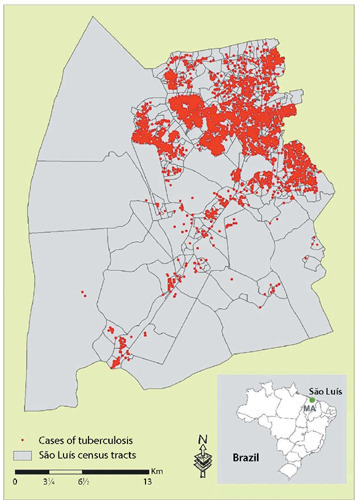-
RESEARCH01-01-2017
Unna’s boot: experience of care of people with venous ulcers
Revista Brasileira de Enfermagem. 2017;70(2):349-356
Abstract
RESEARCHUnna’s boot: experience of care of people with venous ulcers
Revista Brasileira de Enfermagem. 2017;70(2):349-356
DOI 10.1590/0034-7167-2016-0219
Views0See moreABSTRACT
Objective:
to understand the experience of care of people with venous ulcers using an Unna’s boot.
Method:
a qualitative study, based on the social phenomenology by Alfred Schütz, was carried out with 12 adults interviewed in 2015. The statements were analyzed and organized in thematic categories.
Results:
the following categories emerged: “Unna’s boot annoyance versus wound improvement”, “Difficulties for accessing care with the Unna’s boot”, “Care for healing and preventing recurrence”, and “Receiving more attention from the healthcare professional”.
Conclusion:
the experience of care of people using an Unna’s boot revealed the annoyance caused by this device, which was overcome due to the wound improvement. However, access to care was compromised by the lack of structure at the service, frustrating the patients’ expectations regarding wound healing. The issues of these people’s intersubjective universe should be considered in the management of care of venous ulcers.
-
RESEARCH01-01-2017
Spanish version of the scale of attitudes toward alcohol, alcoholism and alcoholics: content validation
Revista Brasileira de Enfermagem. 2017;70(2):342-348
Abstract
RESEARCHSpanish version of the scale of attitudes toward alcohol, alcoholism and alcoholics: content validation
Revista Brasileira de Enfermagem. 2017;70(2):342-348
DOI 10.1590/0034-7167-2015-0149
Views0See moreABSTACT
Objective:
to describe the process of translation and cultural adaptation of the scale of attitudes towards alcohol, alcoholism and alcoholics into the Spanish language.
Methods:
this was a methodological study, which followed the international guidelines for translation and adaptation of measurement scales.
Results:
During the process of translation and cultural adaptation of scale of attitudes towards alcohol, alcoholism and alcoholics to the Spanish language, the items were adjusted based on semantic, idiomatic and conceptual equivalence of the expressions contained in the scale of attitudes towards alcohol, alcoholism and alcoholics. Content validation indicated satisfactory validity indexes, with Intraclass Correlation Coefficient (ICC) (0.97), Content Validity Index (CVI) (0.92), and the Prevalence Adjusted Bias Adjusted Kappa (PABAK) (0.80).
Conclusion:
the scale of attitudes towards alcohol, alcoholism and alcoholics, adapted and translated into the Spanish language, presented content validity with satisfactory indexes, which affirmed that the instrument was adapted for the Colombian context. The next step will be evaluation of its psychometric properties in order to guarantee reliability for its use in Hispanic populations.
-
RESEARCH01-01-2017
Nursing care protocol for patients with a ventricular assist device
Revista Brasileira de Enfermagem. 2017;70(2):335-341
Abstract
RESEARCHNursing care protocol for patients with a ventricular assist device
Revista Brasileira de Enfermagem. 2017;70(2):335-341
DOI 10.1590/0034-7167-2016-0363
Views0See moreABSTRACT
Objective:
to develop and validate a nursing care protocol for patients with a ventricular assist device (VAD).
Method:
descriptive study, with a quantitative approach, for an instrument’s methodological validation. Three stages were conducted: development of the instrument; protocol content validation according to the Delphi technique, and agreement among experts and the scientific literature.
Results:
based on the content validation, a care protocol for patients with a VAD was created and assessed by Spanish experts. Of the 15 items evaluated by means of the content validity index (CVI), 10 presented solid evidence of validation, with Kappa ranging between 0.87 and 1.
Conclusion:
the method enabled the validation of interventions that will contribute to qualified and standardized care for patients with a VAD.
-
RESEARCH01-01-2017
Nasoenteral tube: factors associated with delay between indication and use in emergency services
Revista Brasileira de Enfermagem. 2017;70(2):326-334
Abstract
RESEARCHNasoenteral tube: factors associated with delay between indication and use in emergency services
Revista Brasileira de Enfermagem. 2017;70(2):326-334
DOI 10.1590/0034-7167-2016-0222
Views0ABSTRACT
Objective:
to know the time between indication and use of a nasoenteral tube (NET) and factors associated with delays.
Method:
A prospective cohort study that followed adults in a Brazilian emergency department, since the indication of the use of a NET, evaluating clinical variables and the work process. The Generalized Estimated Equations model was adopted to identify factors associated with the delays in each stage of the process.
Results:
the time between indication and use of NET was 573 (IQR: 3601,093) minutes, in 150 insertions of NET. Insertions in patients who previously did not use it; delays in the medical, nutrition, and nursing care routine; use of mechanical ventilation; noradrenaline; and fasting were factors for longer time before the use of the tube.
Conclusion:
the time between indication and use of NET was high, exceeding 10 hours in half of the cases. Factors related to the clinical condition of the patient and to the care management would contribute to delays.
Keywords:Emergency Medical ServicesGastrointestinal IntubationNursing CarePatient SafetyTreatment TimeSee more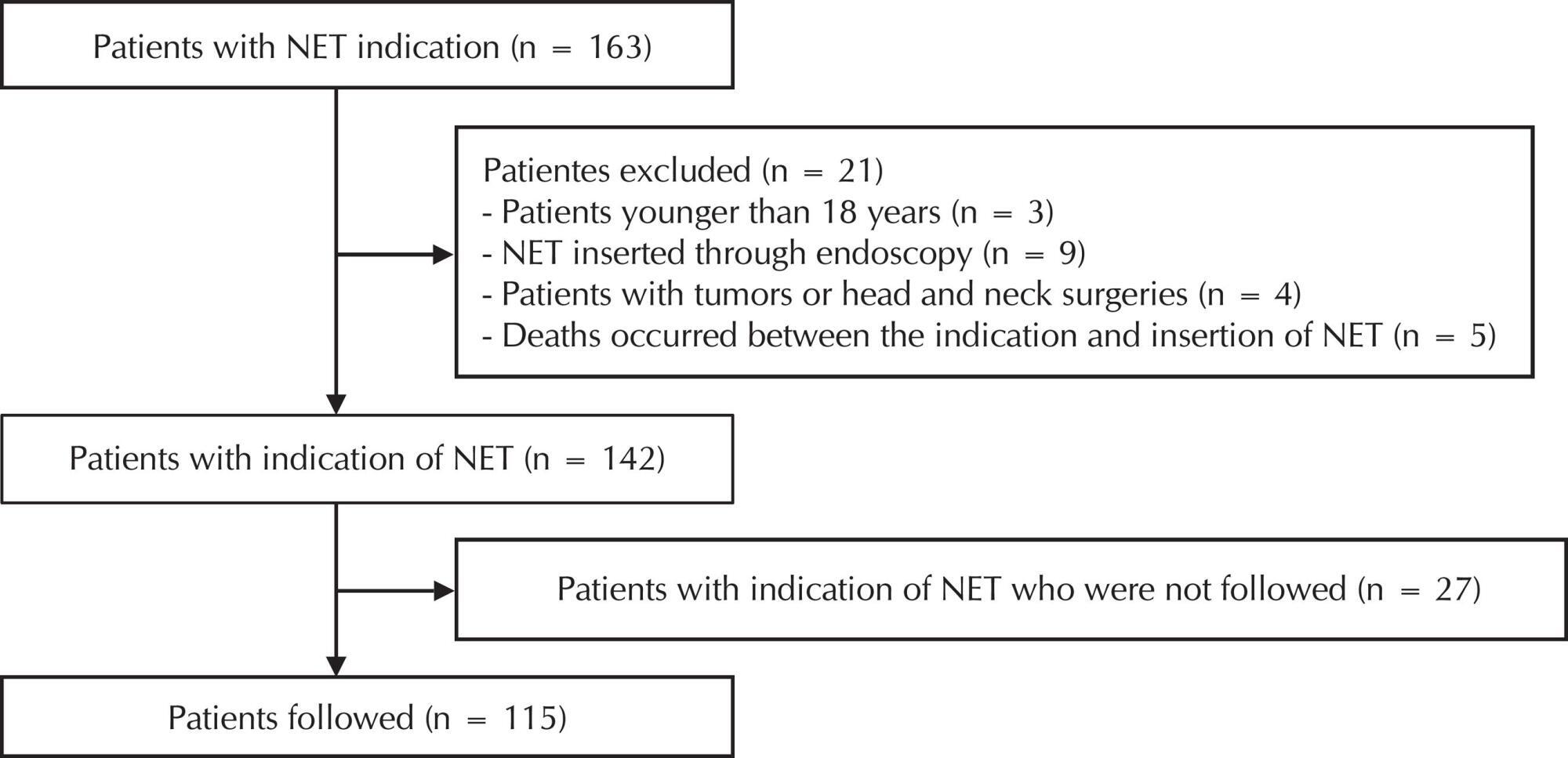
-
RESEARCH01-01-2017
Non-pharmacological measures in preterm newborns submitted to arterial puncture
Revista Brasileira de Enfermagem. 2017;70(2):317-325
Abstract
RESEARCHNon-pharmacological measures in preterm newborns submitted to arterial puncture
Revista Brasileira de Enfermagem. 2017;70(2):317-325
DOI 10.1590/0034-7167-2016-0003
Views0See moreABSTRACT
Objective:
to assess pain in preterm newborns and to compare the neonatal and therapeutic variables with the total scores of the Neonatal Facial Coding System of preterm newborns submitted to arterial puncture exposed to music and 25% oral glucose.
Method:
a comparative study with 48 recordings of preterm newborns – Group 1, music (26); Group 2, glucose 25% (22) – individually analyzed by three trained nurses, after Kappa of at least 80%.
Results:
the variables and the pain scores of the groups did not present statistical significance (p < 0.05) according to the Neonatal Facial Coding System. 80.8% of the preterm infants in Group 1 had a higher quantitative score ≥ 3 in the neonatal variables (gender, type of delivery), and therapeutic variables (type of oxygen therapy, place of hospitalization, type of puncture).
Conclusion:
There was no difference when comparing the music and glucose 25% groups and the variables studied.
-
RESEARCH01-01-2017
Moral sensitivity in Primary Health Care nurses
Revista Brasileira de Enfermagem. 2017;70(2):308-316
Abstract
RESEARCHMoral sensitivity in Primary Health Care nurses
Revista Brasileira de Enfermagem. 2017;70(2):308-316
DOI 10.1590/0034-7167-2016-0453
Views0See moreABSTRACT
Objective:
to characterize the profile and describe the moral sensitivity of primary health care nurses.
Method:
this is a quantitative, transversal, exploratory, descriptive study. The data were collected through the Moral Sensitivity Questionnaire translated and adapted to Brazil. 100 primary health care nurses participated, from Rio Grande do Sul, Brazil. The data collection took place during the months of March and July 2016, in an online form. The analysis of the data occurred through descriptive statistical analysis.
Results:
the nurses had an average moral sensitivity of 4.5 (out of 7). The dimensions with the greatest moral sensitivity were: interpersonal orientation, professional knowledge, moral conflict and moral meaning.
Conclusion:
the nurses of Rio Grande do Sul have a moderate moral sensitivity, which may contribute to a lower quality in Primary Health Care.
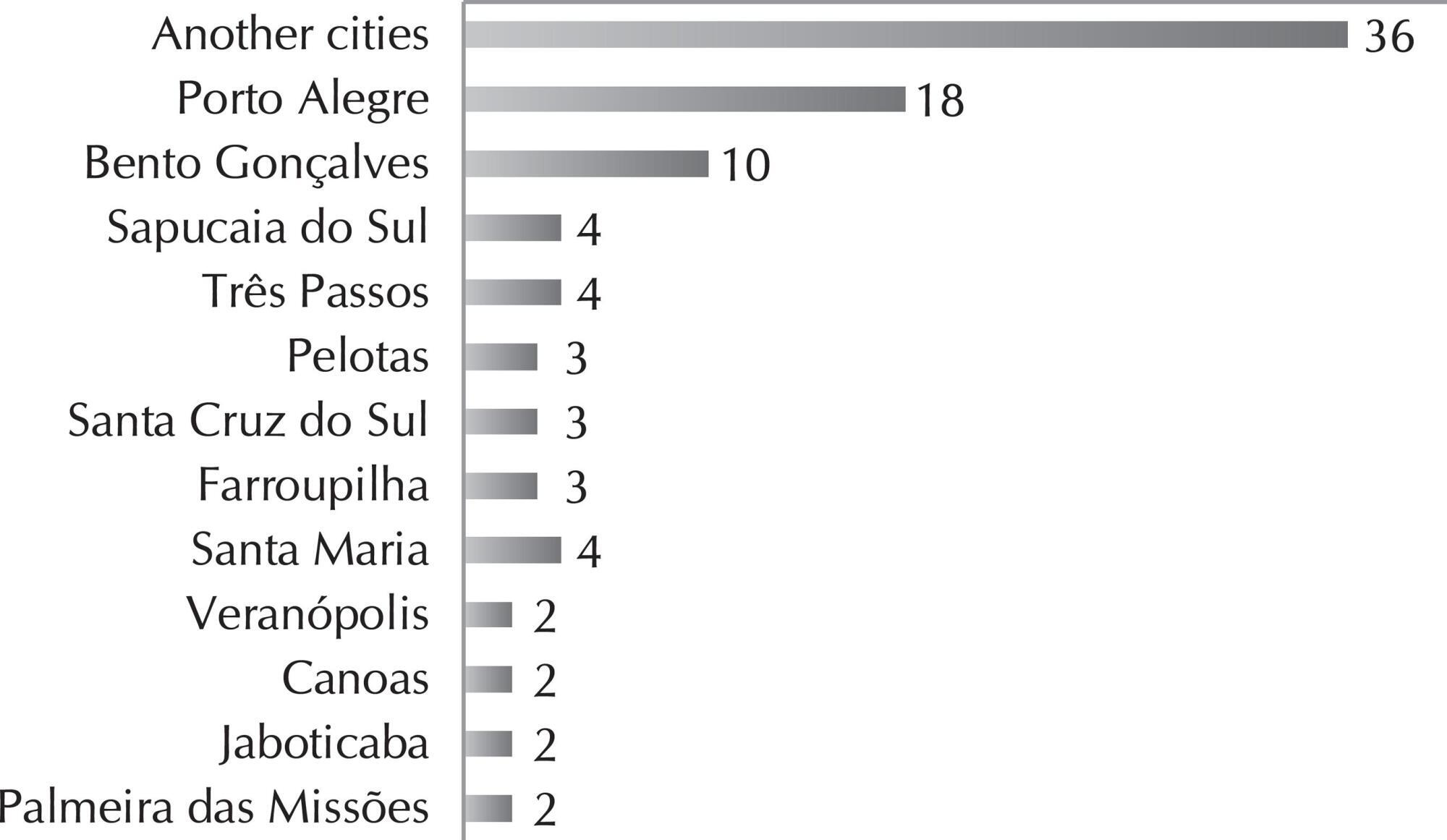
-
RESEARCH01-01-2017
Moral suffering among nurse educators of technical courses in nursing
Revista Brasileira de Enfermagem. 2017;70(2):301-307
Abstract
RESEARCHMoral suffering among nurse educators of technical courses in nursing
Revista Brasileira de Enfermagem. 2017;70(2):301-307
DOI 10.1590/0034-7167-2016-0185
Views0See moreABSTRACT
Objective:
to understand situations of moral suffering experienced at work by nurse educators of technical courses in nursing.
Method:
a qualitative study with discursive textual analysis by means of semi-structured interviews with ten nurse educators at two professional educational institutions in southern Brazil.
Results:
two categories were established: lack of commitment on the part of students to the future profession, expressed through disrespect and disregard for the work of nurse educators, with inappropriate behaviors and attitudes; and lack of commitment to the learning-teaching process, expressed by indifference to the professional profile and lack of interest in lessons and care practices associated with learning gaps.
Conclusion:
these situations have an impact on experiences of moral suffering by nurse educators, and show a need for rethinking their practice, relationships, and educational spaces, and implementing strategies to favor the confrontation of dilemmas and conflicts experienced in educational practice in technical courses in nursing.
-
RESEARCH01-01-2017
Knowledge of the nursing team on pressure ulcer prevention
Revista Brasileira de Enfermagem. 2017;70(2):294-300
Abstract
RESEARCHKnowledge of the nursing team on pressure ulcer prevention
Revista Brasileira de Enfermagem. 2017;70(2):294-300
DOI 10.1590/0034-7167-2016-0063
Views0See moreABSTRACT
Objective:
describe and analyze the nursing team’s knowledge about classification, evaluation and measures to prevent pressure ulcers (PU) in patients hospitalized in the ICU of a teaching hospital in the city of Manaus.
Method:
a descriptive and exploratory study was conducted after approval by a research ethics committee. Data were collected using a validated instrument. The study sample was made up of 40 nursing staff members, of whom 14 were nurses and 26 were nursing technicians/aides. Data were analyzed through descriptive statistics and Student’s t-test, with value of p<0.05.
Results:
the overall mean of hits was 63.4% for technicians/aides and 51.4% for nurses, with statistically significant differences between the groups only for the PU prevention category (p<0.001).
Conclusion:
a deficit of knowledge on PU prevention was found among nurses and nursing technicians/aides, demanding the training of these professionals.
-
EDITORIAL08-19-2024
Sexual abuse, abortion and public health in Brazil: when moral judgment accentuates inequities
Revista Brasileira de Enfermagem. 2024;77:e77suppl0401
Abstract
EDITORIALSexual abuse, abortion and public health in Brazil: when moral judgment accentuates inequities
Revista Brasileira de Enfermagem. 2024;77:e77suppl0401
DOI 10.1590/0034-7167.202477suppl0401
Views0Here is an academic-political editorial that aims to call on the scientific field to reflect on the dangers of decisions regarding the right to abortion under moral rules, since there is no evidence that such a perspective translates into practices of care, protection of childhood and gender equity – elements that are so urgent and […]See more -
ORIGINAL ARTICLE08-19-2024
The use of individual tracking programs in public health: a bioethics dilemma
Revista Brasileira de Enfermagem. 2024;77:e20230041
Abstract
ORIGINAL ARTICLEThe use of individual tracking programs in public health: a bioethics dilemma
Revista Brasileira de Enfermagem. 2024;77:e20230041
DOI 10.1590/0034-7167-2023-0041
Views0See moreABSTRACT
Objective:
to understand the bioethical perspectives on mobile tracking device use.
Methods:
theoretical study based on action research, carried out with eight graduate students from a public university. A focus group was used, with a thematic content analysis methodology with a codebook structure, approved by the Research Ethics Committee.
Results:
from the analysis, there was a concern about using devices after the pandemic ended. Using or not the device, rights inherent to humans, legislation and effectiveness of methods deepen interpretations, moving participants from a personalistic conception of the topic to a vision focused on professional implications about the methods.
Final considerations:
the debate on the impact of using technological devices on health, especially those that imply restriction of rights that refer to individuals’ private life, involves a discussion of a professional nature, in addition to requirement for clear rules on the topic.
-
ORIGINAL ARTICLE08-19-2024
Bioethical issues in the family health strategy: Considerations for nursing care management
Revista Brasileira de Enfermagem. 2024;77:e20220818
Abstract
ORIGINAL ARTICLEBioethical issues in the family health strategy: Considerations for nursing care management
Revista Brasileira de Enfermagem. 2024;77:e20220818
DOI 10.1590/0034-7167-2022-0818
Views0See moreABSTRACT
Objective:
To understand the bioethical issues involved in the care management of nurses working in the Family Health Strategy.
Method:
A qualitative study was conducted through five focus groups with 36 nurses selected in the sample. Thematic content analysis was performed based on the bioethical framework, and the synthesis was presented in a conceptual map.
Results:
Bioethical issues were identified in the nursing care practice, related to both specific bioethical themes and the peculiarities of the work. Additionally, challenges and facilitators that interfere with addressing these issues were identified.
Final considerations:
Understanding the bioethical issues involved in the care management of nurses was possible with the theoretical support of different bioethical perspectives. The identified issues relate to persistent and current themes in the field of bioethics. However, some aspects intrinsic to daily practice are still imperceptible to professionals, contributing to the difficulty of discussing bioethics in this care model.

-
REVIEW07-29-2024
Telenursing in the postoperative period: a scoping review
Revista Brasileira de Enfermagem. 2024;77(3):e20240066
Abstract
REVIEWTelenursing in the postoperative period: a scoping review
Revista Brasileira de Enfermagem. 2024;77(3):e20240066
DOI 10.1590/0034-7167-2024-0066
Views0See moreABSTRACT
Objectives:
to map available evidence on telenursing use in the postoperative period and its impact on patient outcomes.
Methods:
a scoping review, conducted according to the JBI model and the PRISMA-ScR checklist. The search was carried out in the CINAHL, Embase, LILACS, PubMed, Web of Science, SciELO, Scopus and Cochrane Library databases.
Results:
twelve studies were included, published between 2011 and 2023, 66.6% of which were in developed countries. Of the positive outcomes, we highlight improved levels of disability, autonomy and quality of life, lower rates of post-operative complications, pain and reduced costs. Telephone monitoring was the most widely used modality, but there were few studies in the pediatric context and in Brazil.
Conclusions:
of the studies, 11 (91.6%) identified at least one positive outcome in telenursing use and none showed negative aspects in the postoperative period. The role of nurses in digital health needs further study.

-
ORIGINAL ARTICLE07-29-2024
Men’s perception of paternal parenthood and the promotion of child development
Revista Brasileira de Enfermagem. 2024;77(3):e20230514
Abstract
ORIGINAL ARTICLEMen’s perception of paternal parenthood and the promotion of child development
Revista Brasileira de Enfermagem. 2024;77(3):e20230514
DOI 10.1590/0034-7167-2023-0514
Views0See moreABSTRACT
Objectives:
to comprehend men’s perception of paternal parenthood while caring for infants to promote child development.
Methods:
this qualitative study adopts an exploratory approach and was conducted with undergraduate and graduate students, faculty, and staff who are fathers of infants up to 6 months old from a higher education institution, excluding fathers from mononuclear families. Data collection occurred through semi-structured interviews and was analyzed using thematic categorical analysis.
Results:
fifteen men participated in the study. From the analysis, two empirical categories emerged: “Perception of being a father: challenges and novelties” and “Promotion of child development: actions carried out by fathers”. Fathers revealed feeling unprepared, the need for emotional support, and recognized activities aimed at their children’s development.
Final Considerations:
the relevance of the paternal figure for child development is highlighted, as well as the need for public policies to encourage paternal parenthood.
-
ORIGINAL ARTICLE07-29-2024
Contribution of informal caregivers to self-care in individuals with heart failure
Revista Brasileira de Enfermagem. 2024;77(3):e20230492
Abstract
ORIGINAL ARTICLEContribution of informal caregivers to self-care in individuals with heart failure
Revista Brasileira de Enfermagem. 2024;77(3):e20230492
DOI 10.1590/0034-7167-2023-0492
Views0See moreABSTRACT
Objectives:
to evaluate the contribution of informal caregivers to the self-care of individuals with heart failure.
Methods:
a cross-sectional study was conducted with 87 caregivers from March to October 2022 in the city of João Pessoa/PB. The caregivers’ contribution was assessed using the Caregiver Contribution to Self-Care of Heart Failure Index instrument. Scores ≥ 70 points indicate adequate contribution. Data were analyzed using descriptive statistics and Spearman’s correlation.
Results:
the sample consisted of 81.6% female caregivers. Median scores obtained for the self-care contribution scales were: 63.3 for maintenance; 55.5 for management; and 66.6 for confidence. Caregivers never or rarely recommended monitoring body weight, regular physical exercise, extra use of diuretics, and fluid restriction.
Conclusions:
informal caregivers showed inadequate contribution in the areas of maintenance, management, and confidence in self-care of individuals with heart failure.
-
Reflections on theoretical framework use in nursing research
Revista Brasileira de Enfermagem. 2024;77(3):e20230486
Abstract
Reflections on theoretical framework use in nursing research
Revista Brasileira de Enfermagem. 2024;77(3):e20230486
DOI 10.1590/0034-7167-2024-0486
Views0See moreABSTRACT
Objectives:
to reflect on theoretical framework use in nursing research.
Methods:
a theoretical-reflexive study, based on concepts and constructs pertinent to using nursing theories and other sciences, considering issues of epistemology or philosophy of science.
Results:
we presented what it is and why to do nursing research and what a theoretical framework is and why to use it, in addition to some considerations regarding theoretical framework use in nursing research, essential for constructing disciplinary knowledge, which enables the materialization of researchers’ work and the presentation of propositions resulting from investigations in and for nursing as a discipline and science.
Final Considerations:
based on a reflection based on epistemological conceptions, it is possible to affirm that a theoretical framework is the core of researchers’ thinking, delimiting a problem to be investigated and, based on it, outlining methodological strategies to be followed, supporting nursing action and thinking as discipline and science.

-
REVIEW07-29-2024
Nursing diagnoses for people hospitalized with heart failure: an integrative review
Revista Brasileira de Enfermagem. 2024;77(3):e20230471
Abstract
REVIEWNursing diagnoses for people hospitalized with heart failure: an integrative review
Revista Brasileira de Enfermagem. 2024;77(3):e20230471
DOI 10.1590/0034-7167-2023-0471
Views0See moreABSTRACT
Objectives:
to identify in the literature the main nursing diagnoses according to the NANDA-I diagnostic classification for people hospitalized with heart failure.
Methods:
an integrative literature review, carried out in February 2019 and updated in July 2023, in the MEDLINE via PubMed, LILACS, SciELO and CINAHL databases. Given the use of acronym PEO, studies without a time cut in Portuguese, English and Spanish were included. Descriptive analysis was carried out to present the identified information.
Results:
analysis of 27 articles identified 24 nursing diagnoses, with emphasis on Decreased Cardiac Output, Excessive Fluid Volume, Decreased Activity Tolerance and Fatigue.
Final Considerations:
evidence can contribute to better diagnostic decisions centered on people with heart failure in search of more assertive health results and have the potential to support future studies on a possible syndromic pattern in this population.

-
ORIGINAL ARTICLE06-17-2024
Quality of life associated with nursing professionals’ individual resources and work
Revista Brasileira de Enfermagem. 2024;77(3):e20230476
Abstract
ORIGINAL ARTICLEQuality of life associated with nursing professionals’ individual resources and work
Revista Brasileira de Enfermagem. 2024;77(3):e20230476
DOI 10.1590/0034-7167-2023-0476
Views0See moreABSTRACT
Objectives:
to assess the physical and mental components of nursing professionals’ quality of life and associate them with individual, health and work characteristics.
Methods:
cross-sectional research, with nursing professionals from a university hospital in São Paulo. Own questionnaire and validated instruments were applied.
Results:
the overall quality of life was compromised. The physical component was lower in relation to low family income and among those who perceived greater control/pressure at work, and better for those who practiced physical activity and had support of leader and organization. The mental component was lower in professionals who reported dissatisfaction with work, worse self-rated physical health and were older. Scores for both components reduced due to work-related illnesses, worse work ability and increased daytime sleepiness.
Conclusions:
quality of life was statistically associated with controllable institutional factors and individual resources that, except age, can be promoted.
-
ORIGINAL ARTICLE06-17-2024
Giving meaning to internalized violence throughout life by older adults living in rural areas
Revista Brasileira de Enfermagem. 2024;77(3):e20230163
Abstract
ORIGINAL ARTICLEGiving meaning to internalized violence throughout life by older adults living in rural areas
Revista Brasileira de Enfermagem. 2024;77(3):e20230163
DOI 10.1590/0034-7167-2023-0163
Views0See moreABSTRACT
Objectives:
to understand the meanings of violence internalized throughout life by older adults living in rural areas.
Methods:
a qualitative study, anchored in the Symbolic Interactionism theoretical framework and the Grounded Theory methodological framework in the constructivist aspect. Data collection occurred through individual interviews. Data were coded using the Atlas.ti software.
Results:
it was possible to identify that the context of rural areas strengthens patriarchy culture as well as contributing to violence silence and naturalization. It was also found that violence is a product of social inequality and gender inequality.
Final Considerations:
older adults living in rural areas internalized the violence suffered in a unique way, and this scenario’s specific aspects can increase intra-family abuse, as there is a patriarchal culture that promotes social and gender inequality.
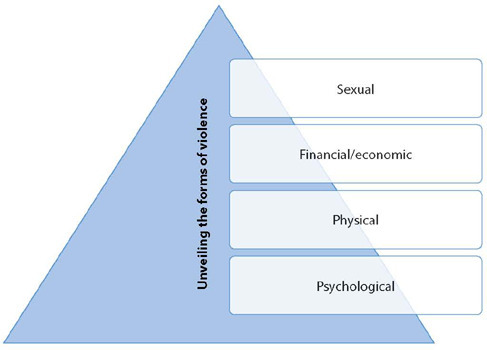
-
ERRATUM06-14-2024
ERRATUM
Revista Brasileira de Enfermagem. 2024;77(2):e2024n2e06
Abstract
ERRATUMERRATUM
Revista Brasileira de Enfermagem. 2024;77(2):e2024n2e06
DOI 10.1590/0034-7167.20247702e06
Views0In the article “Is there scientific relevance to the plot of films and documentaries about eating disorders?”, with DOI number: , published in Revista Brasileira de Enfermagem, 2024;77(1):e20220547, page 7:Where it read:[…]See more -
ERRATUM06-14-2024
ERRATUM
Revista Brasileira de Enfermagem. 2024;77(2):e2024n2e05
Abstract
ERRATUMERRATUM
Revista Brasileira de Enfermagem. 2024;77(2):e2024n2e05
DOI 10.1590/0034-7167.20247702e05
Views0In the article “Educational technologies used to promote self-care for people with diabetes mellitus: integrative review”, with DOI number: , published in Revista Brasileira de Enfermagem, 2023;76(Suppl 4):e20230049, in the title:Where it read:[…]See more -
REVIEW06-14-2024
Lean and/or Six Sigma for process optimization in the perioperative period: an integrative review
Revista Brasileira de Enfermagem. 2024;77(2):e20230431
Abstract
REVIEWLean and/or Six Sigma for process optimization in the perioperative period: an integrative review
Revista Brasileira de Enfermagem. 2024;77(2):e20230431
DOI 10.1590/0034-7167-2023-0431
Views0See moreABSTRACT
Objective:
To analyze the evidence on the influence of Lean and/or Six Sigma for process optimization in the perioperative period.
Methods:
Integrative review carried out in the MEDLINE (PubMed), Web of Science, EMBASE, CINAHL, Scopus and LILACS databases on the use of Lean and/or Six Sigma to optimize perioperative processes. The studies included were analyzed in three thematic categories: flow of surgical patients, work process and length of stay.
Results:
The final sample consisted of ten studies, which covered all operative periods. Lean and/or Six Sigma make a significant contribution to optimizing perioperative processes.
Final considerations:
Lean and/or Six Sigma optimize perioperative processes to maximize the achievement of system stability indicators, making it possible to identify potential problems in order to recognize them and propose solutions that can enable the institution of patient-centered care.
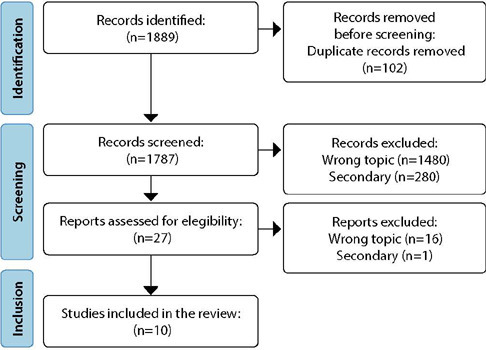
-
ORIGINAL ARTICLE06-14-2024
Strategies used by nurses regarding underreporting of rural work accidents due to pesticide use
Revista Brasileira de Enfermagem. 2024;77(2):e20230384
Abstract
ORIGINAL ARTICLEStrategies used by nurses regarding underreporting of rural work accidents due to pesticide use
Revista Brasileira de Enfermagem. 2024;77(2):e20230384
DOI 10.1590/0034-7167-2023-0384
Views0See moreABSTRACT
Objective:
To learn the strategies used regarding underreporting of pesticide use in rural areas.
Methods:
A qualitative study was carried out in eight primary healthcare units in rural areas and two emergency care units in a municipality in southern Brazil. Data collection took place in 2023 through interviews. Twenty professional nurses participated. The data was submitted to content analysis.
Results:
The strategies identified were lifelong and continuing education for the professionals who carry out the notification, active search and training of workers who deal directly with this type of substance, computerizing the notification by filling in the forms online, and carrying out research on the subject.
Final considerations:
Nurses play an important role in reporting occupational accidents caused by the use of pesticides, improving occupational safety in rural areas.

-
ORIGINAL ARTICLE06-14-2024
Teoria de médio alcance do diagnóstico de enfermagem sobrepeso
Revista Brasileira de Enfermagem. 2024;77(2):e20230372
Abstract
ORIGINAL ARTICLETeoria de médio alcance do diagnóstico de enfermagem sobrepeso
Revista Brasileira de Enfermagem. 2024;77(2):e20230372
DOI 10.1590/0034-7167-2023-0372
Views0See moreRESUMEN
Objetivo:
Construir una teoría de rango medio para el diagnóstico de enfermería Sobrepeso en adolescentes y adultos jóvenes.
Métodos:
Estudio metodológico a la luz de los marcos teóricos de Roy y de Lopes, Silva y Herdman. Un total de 3.925 artículos fueron recuperados y evaluados utilizando el software State of the Art Through Systematic Review. La muestra final fue de 28 artículos.
Resultados:
Los resultados convergieron en 3 atributos esenciales, 13 antecedentes y 7 consecuencias. Se construyó una teoría de rango medio compuesta por un diagrama ilustrado, 11 proposiciones y 12 relaciones causales.
Consideraciones finales:
A partir de la creación de la teoría, fue posible comprender mejor el diagnóstico de enfermería Sobrepeso en el contexto de adolescentes y adultos jóvenes. La comprensión de los fenómenos de enfermería contribuye para el avance y fortalecimiento de la ciencia de enfermería.
Search
Search in:
Nuvem de Tags
Aged (144) Atenção Primária à Saúde (239) COVID-19 (104) Cuidados de Enfermagem (269) Educação em Enfermagem (151) Educação em Saúde (139) Enfermagem (930) Estudos de Validação (131) Health Education (144) Idoso (208) Mental Health (149) Nursing (987) Nursing Care (306) Patient Safety (151) Primary Health Care (284) Qualidade de Vida (104) Quality of Life (106) Saúde Mental (145) Segurança do Paciente (150) Validation Studies (108)




